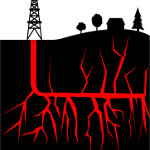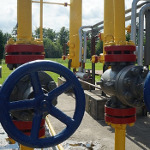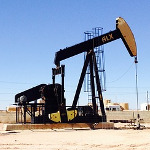 When a 5.8 magnitude earthquake centered in Oklahoma shook that state and several others over Labor Day weekend, regulators in the Sooner State ordered 37 oil and gas wastewater disposal wells to shut down because of previous connections to quakes, according to a report by Androvett Legal Media and Marketing.
When a 5.8 magnitude earthquake centered in Oklahoma shook that state and several others over Labor Day weekend, regulators in the Sooner State ordered 37 oil and gas wastewater disposal wells to shut down because of previous connections to quakes, according to a report by Androvett Legal Media and Marketing.
There also have been earthquakes in Texas that some researchers believe are tied to disposal wells used for wastewater fluids resulting from hydraulic fracturing/fracking operations. While state regulators continue to question a definitive link between these wells and earthquakes, some major oil and gas producers are already taking steps to try to avoid problems.
“The more sophisticated producers are already beginning to use technologies to recycle water used in fracking and to develop new formulas that substantially reduce both water usage and the amount that must be disposed by subsurface injection. Those changes will provide numerous benefits, which may include reducing the potential for seismic activity,” said Leonard Dougal, an environmental lawyer with Jackson Walker LLP in Austin who is also a former petroleum engineer.
“In most cases, however, the disposal of wastewater is contracted out to other service companies, and many producers aren’t involved in decisions about where those wells are drilled or how they are operated. But that separation may not totally free producers from a potential lawsuit given the recent widespread publicity about earthquakes. Producers also should take steps to reduce liability by avoiding use of disposal wells or contractors working in areas of known seismic activity.”
 Two Texas Supreme Court decisions published on the same day confirm that retained acreage clauses that vary in language from one instrument to another will likely vary in effect, according to Gray Reed & McGraw’s Energy & the Law blog.
Two Texas Supreme Court decisions published on the same day confirm that retained acreage clauses that vary in language from one instrument to another will likely vary in effect, according to Gray Reed & McGraw’s Energy & the Law blog.



 When a 5.8 magnitude earthquake centered in Oklahoma shook that state and several others over Labor Day weekend, regulators in the Sooner State ordered 37 oil and gas wastewater disposal wells to shut down because of previous connections to quakes, according to a report by
When a 5.8 magnitude earthquake centered in Oklahoma shook that state and several others over Labor Day weekend, regulators in the Sooner State ordered 37 oil and gas wastewater disposal wells to shut down because of previous connections to quakes, according to a report by  Horizontal wells drilled across lease lines were clearly not contemplated in a typical oil and gas lease, and lessors should not be forced to accept a formula for royalty payment to which they have not agreed, advises
Horizontal wells drilled across lease lines were clearly not contemplated in a typical oil and gas lease, and lessors should not be forced to accept a formula for royalty payment to which they have not agreed, advises